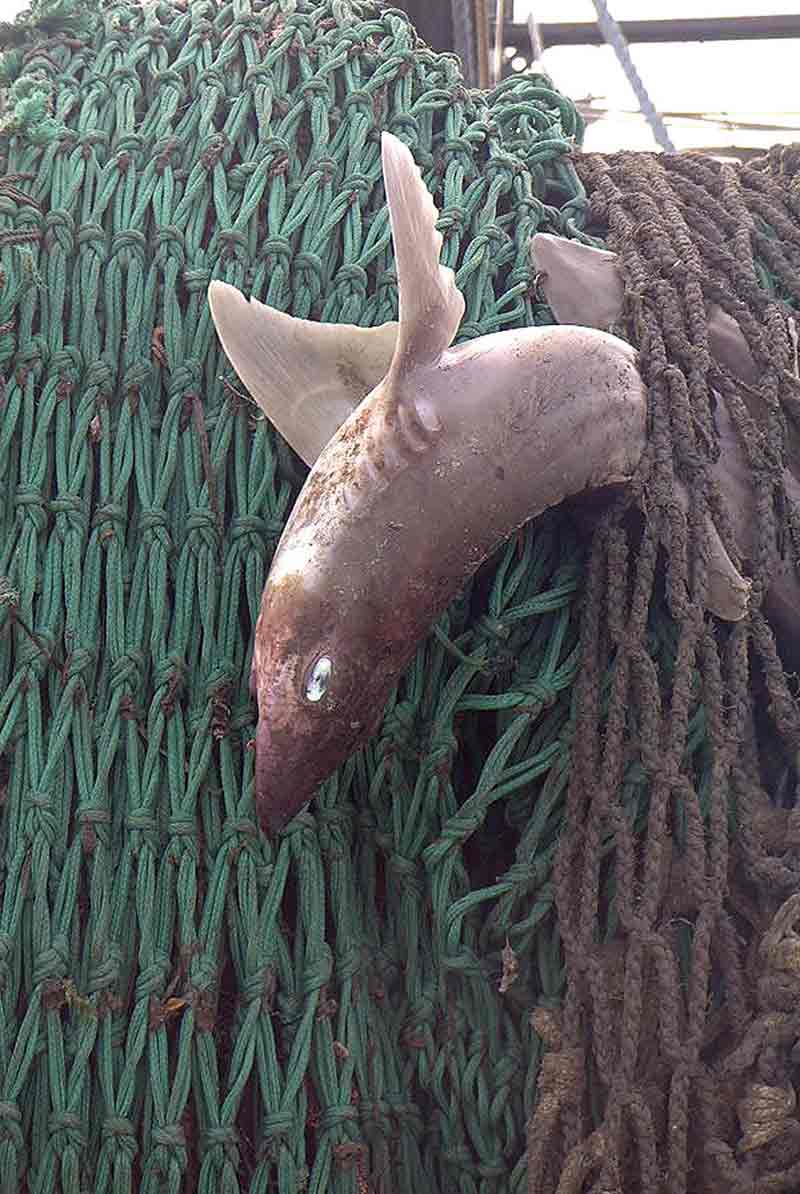Shark Alliance Statement on EU Shark Fishing Limits for 2010
The Shark Alliance is urging all EU Fisheries Ministers to overcome a lack of leadership from the European Commission and agree an end to all fishing for Critically Endangered spurdog and porbeagle sharks at their December 14-15 Council meeting. Scientists have advised a total allowable catch (TAC) of zero for spurdog (also known as spiny dogfish) and a ban on landings of porbeagle. The European Commission last week proposed a 90% reduction in 2010 spurdog TACs and has yet to make a proposal for 2010 porbeagle catches.
The European Commission completed its long-awaited Community Plan of Action for Sharks in March 2009 and with it pledged to adhere to scientific advice with respect to fishing limits. Since then, however, the Commission has failed to live up to core commitments in the Plan. Last year, the Commission’s stance on spurdog and porbeagle TACs was stronger than this year’s and fully in line with scientific advice: the Commission proposed TACs of zero for both species in 2008 for the 2009 fishing year. It is now up to EU Fisheries Ministers to save the two shark species from irreparable collapse by setting 2010 spurdog and porbeagle TACs at zero.
In addition to being critical to the fate of depleted European populations, decisions on 2010 EU fishing limits for the two shark species have immediate implications for proposed international trade limits aimed at safeguarding spurdog and porbeagle populations around the world. Last week, the EU submitted proposals to list spurdog and porbeagle sharks under Appendix II of the Convention for International Trade in Endangered Species (CITES) and thereby restrict international trade to sustainable levels. Failure to heed scientific advice for EU spurdog and porbeagle fishing could well hurt EU efforts to secure agreements for global conservation action for the two shark species at the March CITES meeting.
The International Council for Exploration of the Seas (ICES), which provides scientific advice to the European Commission, has long warned of spurdog population collapse and recommended zero take of the species. Spurdog are sold as fish and chips in the UK and as smoked belly flaps in Germany; filets are eaten in other EU countries including Belgium, France, and Italy. Female spurdog remain pregnant for nearly two years, a record in the animal kingdom. Fisheries often target aggregations of pregnant females as they grow larger and fetch higher prices than males. The UK received the greatest share of 2009 EU spurdog quotas. Spurdog are categorized by IUCN as Critically Endangered in the Northeast Atlantic.
ICES has repeatedly recommended that fishing for European porbeagles should not be allowed and last year called for a complete ban on porbeagle landings. EU fishing for the large and highly migratory porbeagle shark was not limited until 2008 and current quotas (436tonnes total) are too high to rebuild the population. France and Spain are responsible for the bulk of EU porbeagle catches, which are driven by European demand for meat and Asian demand for shark fin soup. The UK, Sweden, Denmark, Ireland, Portugal and Germany also have porbeagle quota shares. Porbeagle sharks are classified by IUCN as Critically Endangered in the Northeast Atlantic.
The Shark Alliance is a coalition of 76 non-governmental organizations dedicated to restoring and conserving shark populations by improving shark conservation policy.
The Shark Alliance was initiated and is coordinated by the Pew Environment Group, the conservation arm of the Pew Charitable Trusts, a non-government organisation that is working to end overfishing in the world's oceans.







